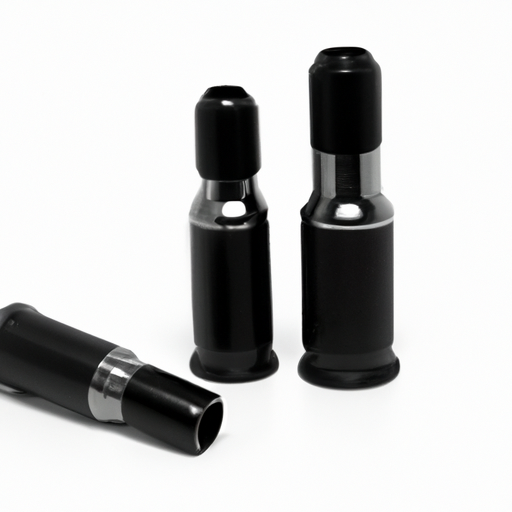

Title: Understanding the Differences Between Mainstream Bullet Connector Models

1. Standard Bullet Connectors (200 words) Standard bullet connectors, also known as single bullet connectors, are the most basic and commonly used type. They consist of two cylindrical metal terminals, one male and one female, which are inserted into each other to establish an electrical connection. These connectors are typically made of brass or copper, providing good conductivity and durability. Standard bullet connectors are available in various sizes, allowing for compatibility with different wire gauges.
2. Insulated Bullet Connectors (200 words) Insulated bullet connectors are an enhanced version of standard bullet connectors. They feature a plastic or rubber insulation sleeve that covers the metal terminals, providing electrical insulation and protection against moisture, dust, and other environmental factors. This insulation helps prevent short circuits and ensures a more secure connection. Insulated bullet connectors are commonly used in automotive applications, where they are exposed to harsh conditions.
3. Quick Disconnect Bullet Connectors (200 words) Quick disconnect bullet connectors, also known as push-on bullet connectors, are designed for easy and rapid connection and disconnection. They feature a spring-loaded male terminal that can be easily inserted into the female terminal, creating a secure connection. These connectors are commonly used in applications where frequent connection and disconnection are required, such as in audio systems or portable devices.
4. High-Current Bullet Connectors (200 words) High-current bullet connectors are specifically designed to handle higher electrical currents. They feature larger terminal sizes and are made of materials with higher conductivity, such as silver or gold-plated brass. These connectors are commonly used in applications that require high power transmission, such as electric vehicles, power distribution systems, and industrial machinery.
5. Weatherproof Bullet Connectors (200 words) Weatherproof bullet connectors, as the name suggests, are designed to withstand harsh weather conditions. They feature additional sealing elements, such as rubber gaskets or O-rings, that provide a watertight and dustproof connection. These connectors are commonly used in outdoor applications, marine environments, and off-road vehicles, where exposure to moisture and dirt is a concern.
Conclusion (100 words) Bullet connectors are versatile and reliable electrical connectors used in various industries. Understanding the differences between mainstream bullet connector models is crucial for selecting the right connector for your specific application. Whether you require standard connectors for general use, insulated connectors for added protection, quick disconnect connectors for easy installation, high-current connectors for power transmission, or weatherproof connectors for outdoor use, there is a bullet connector model available to meet your needs. Consider the specific requirements of your application and choose the appropriate bullet connector to ensure a secure and efficient electrical connection.
Title: Understanding the Differences Between Mainstream Bullet Connector Models

1. Standard Bullet Connectors (200 words) Standard bullet connectors, also known as single bullet connectors, are the most basic and commonly used type. They consist of two cylindrical metal terminals, one male and one female, which are inserted into each other to establish an electrical connection. These connectors are typically made of brass or copper, providing good conductivity and durability. Standard bullet connectors are available in various sizes, allowing for compatibility with different wire gauges.
2. Insulated Bullet Connectors (200 words) Insulated bullet connectors are an enhanced version of standard bullet connectors. They feature a plastic or rubber insulation sleeve that covers the metal terminals, providing electrical insulation and protection against moisture, dust, and other environmental factors. This insulation helps prevent short circuits and ensures a more secure connection. Insulated bullet connectors are commonly used in automotive applications, where they are exposed to harsh conditions.
3. Quick Disconnect Bullet Connectors (200 words) Quick disconnect bullet connectors, also known as push-on bullet connectors, are designed for easy and rapid connection and disconnection. They feature a spring-loaded male terminal that can be easily inserted into the female terminal, creating a secure connection. These connectors are commonly used in applications where frequent connection and disconnection are required, such as in audio systems or portable devices.
4. High-Current Bullet Connectors (200 words) High-current bullet connectors are specifically designed to handle higher electrical currents. They feature larger terminal sizes and are made of materials with higher conductivity, such as silver or gold-plated brass. These connectors are commonly used in applications that require high power transmission, such as electric vehicles, power distribution systems, and industrial machinery.
5. Weatherproof Bullet Connectors (200 words) Weatherproof bullet connectors, as the name suggests, are designed to withstand harsh weather conditions. They feature additional sealing elements, such as rubber gaskets or O-rings, that provide a watertight and dustproof connection. These connectors are commonly used in outdoor applications, marine environments, and off-road vehicles, where exposure to moisture and dirt is a concern.
Conclusion (100 words) Bullet connectors are versatile and reliable electrical connectors used in various industries. Understanding the differences between mainstream bullet connector models is crucial for selecting the right connector for your specific application. Whether you require standard connectors for general use, insulated connectors for added protection, quick disconnect connectors for easy installation, high-current connectors for power transmission, or weatherproof connectors for outdoor use, there is a bullet connector model available to meet your needs. Consider the specific requirements of your application and choose the appropriate bullet connector to ensure a secure and efficient electrical connection.